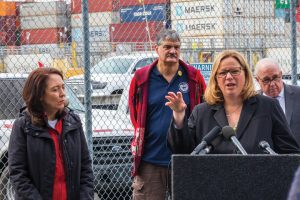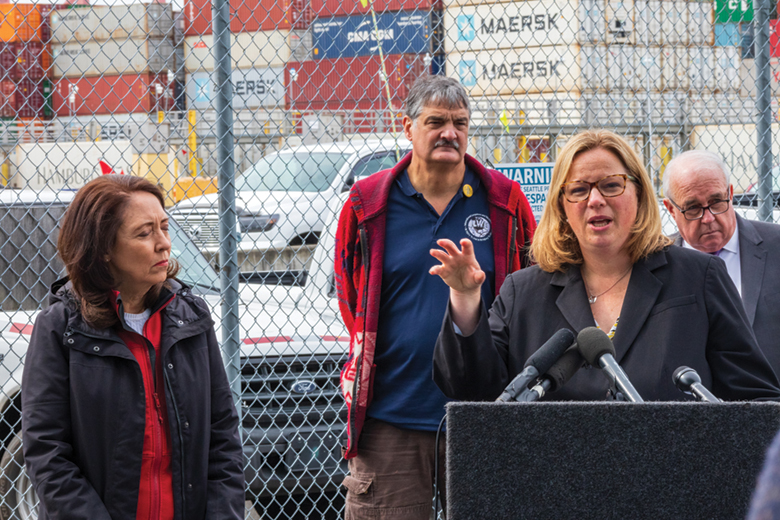
In an effort to help agricultural and refrigerated exports flow through the ports of Seattle and Tacoma, the U.S. Department of Agriculture and Northwest Seaport Alliance are teaming up to expand access to a 49-acre “pop up” yard in Seattle that could temporarily store dry agricultural or refrigerated containers, the USDA announced in mid-March.
The partnership calls for the Farm Service Agency to pay agricultural companies and cooperatives $200 per dry container and $400 per refrigerated to use the pop-up site to pre-position containers with American-grown agricultural goods, according to the Seaport Alliance, which is a port authority comprising the Seattle and Tacoma seaports.
Exporters have been having a tough time moving goods because of vessel schedule issues brought on by congestion at other seaports and Asia’s demand for empty containers.
NWSA reported a close to 30% drop in agricultural exports in the second half of last year and the ratio of loaded versus empties has mainly shifted to empties since May 2021.
“This new pop-up port project will give Washington farmers a place to store their products so they’re ready to make the next available ship,” U.S. Sen. Maria Cantwell explained. “As the Washington growing season ramps up over the next few weeks, this new pop up port will fill up with containers of hay, grains, peas, lentils, refrigerated dairy products, all ready to load onto ships and reach consumers across the globe.”
“This is one tool to help address port congestion, and I will continue to work to hold foreign shipping companies responsible for the price hikes that are leaving our farmers, growers and exporters on the sidelines,” she said.
The USDA’s partnership with the NWSA’s existing near-dock facility at Terminal 46 in Seattle is part of the Biden Administration’s Supply Chain Task Force efforts with state and local governments and builds on earlier efforts.
The Agriculture Department’s efforts to increase capacity at the NWSA follow its Jan. 31 announcement of a similar partnership with the Port of Oakland.
“USDA continues to seek opportunities to partner with additional ports or other intermodal container facilities to help American farmers and agricultural producers move their product to market and manage the short-term challenges while pressing the ocean carriers to restore better levels of service,” the agency said in a statement.

